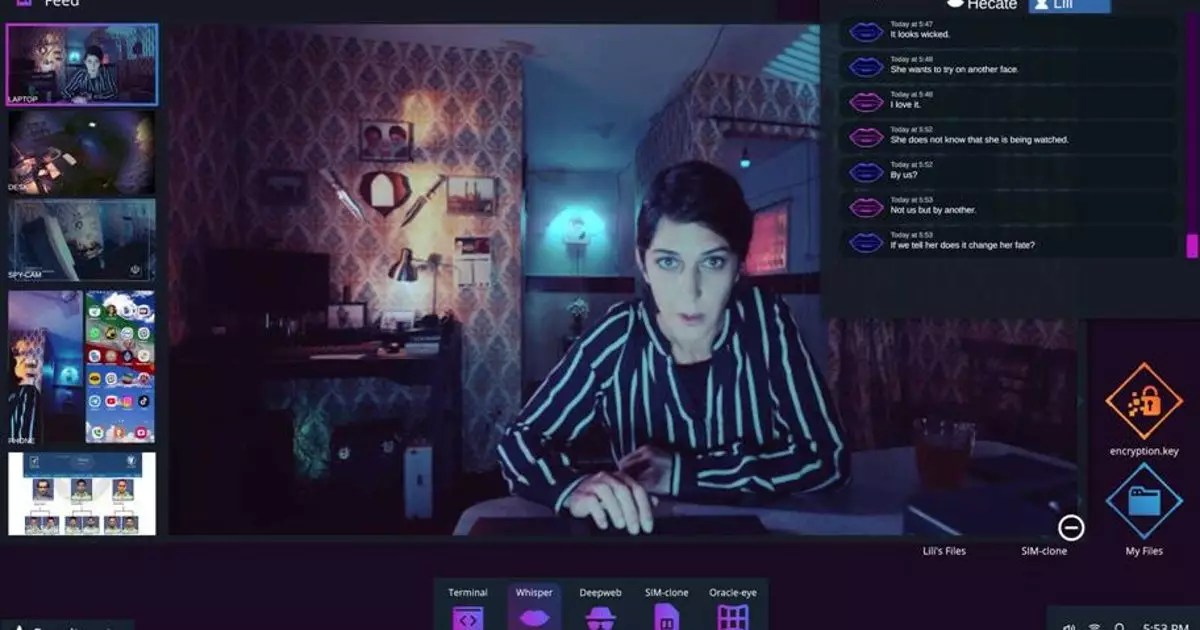In an unexpected but thrilling leap, the Royal Shakespeare Company (RSC) is embracing the digital age. They acknowledge the cultural relevance of video games, recognizing that theatre, albeit timeless, lacks the immersive interactivity that modern audiences crave. Their upcoming collaboration with a gaming studio seeks to merge classical literature with contemporary technology, focusing on a playable adaptation of Shakespeare’s tragic masterpiece, Macbeth. What makes this adaptation particularly intriguing is its narrative perspective: players will inhabit the role of a digital investigator, sifting through Lady Macbeth’s virtual footprint in search of hidden truths.
Set against the backdrop of contemporary Iran, the game—aptly titled Lili—draws upon the politically charged environment that defines the region. The RSC teases that players will experience a world where layers of surveillance and authoritarianism create palpable tension. The witches from Macbeth are transformed into hackers, wielding technology as a means of control and manipulation. This intriguing twist not only updates the classic narrative but also underlines the importance of context in understanding the themes of ambition, power, and morality that permeate Shakespeare’s work.
Incorporating modern elements such as surveillance cameras entrenches players in a digital landscape that reflects the real-world struggles against oppression and violation of privacy. This recontextualization of a 17th-century play into a narrative exploring the complexities of contemporary issues invites players to engage critically with themes of justice and integrity.
What sets Lili apart from other adaptations is its unique gameplay mechanics, blending live-action cinema with interactive storytelling. Players will make choices that meaningfully impact Lady Macbeth’s fate, providing a sense of agency that traditional theatre does not offer. This type of immersion harkens back to successful interactive dramas created by storytellers like Sam Barlow, creators who have pioneered the genre with games like Her Story and Telling Lies.
The RSC’s collaboration with iNK Stories—well-known for their work on the politically charged game 1979 Revolution: Black Friday—adds another layer of depth to this project. The experience promised by Lili—the opportunity to engage with intricate narratives through an interactive format—opens up new avenues for audiences to connect with Shakespeare’s themes in ways previously unimaginable. The inclusion of esteemed actor Zar Amir as the lead, known for her powerful performances and lived experience as an Iranian woman facing gendered oppression, aligns perfectly with the game’s core themes.
Lili not only revisits Shakespearean narratives but also engages with the modern gaming trend of player choice. The idea that players can influence the trajectory of the characters introduces ethical dilemmas and personal stakes that bring Shakespeare’s exploration of ambition and existentialism to life. By adopting an interactive format, the game will challenge players to confront their own moral compasses, all while immersed in a richly stylized vision of modern Iran.
The engagement with contemporary themes, along with the framework of an investigative video game, positions Lili as a significant cultural artifact that engages with technology, art, and social commentary. In a world increasingly reliant on digital narratives, this cross-genre collaboration stands as a testament to the adaptability of Shakespeare’s work, proving that even centuries-old texts can find new relevance in today’s society.
Scheduled to enter production in late 2025, Lili represents a burgeoning trend of adapting classic literature for interactive media. As audiences become increasingly familiar with complex narratives in gaming, the intersection of innovative storytelling formats and traditional literature opens up a frontier for exploration. The RSC’s daring foray into this realm not only signifies a shift in how classic works are perceived and adapted but also highlights the limitless potential of collaborative creativity across disciplines.
Lili promises to bridge the gap between high art and popular culture. Its unique take on Macbeth will not only capture the attention of gamers but also invite theatre enthusiasts to rethink the narrative possibilities of Shakespeare’s canon. As technology evolves, so too does the landscape of storytelling, reflecting our collective evolution and the enduring power of narratives. The future of both theatre and gaming seems vibrant and interconnected, and Lili is poised to be at the forefront of this revolution.


Leave a Reply